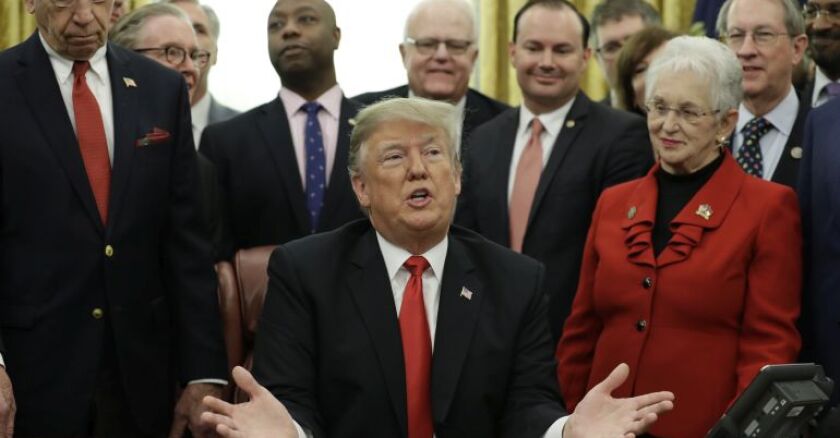SPEED READ:
- In his State of the Union, President Trump touted the First Step Act, a bipartisan criminal justice reform bill he signed in December.
- He did not mention the Juvenile Justice and Delinquency Prevention Act, which he also signed that month.
- The juvenile justice legislation overhauls how states treat young offenders.
In his State of the Union address on Tuesday, President Trump lauded Republican and Democratic members of Congress for coming together to pass criminal justice reforms. The First Step Act, which was signed by Trump in late December, reduces prison sentences for thousands of nonviolent federal inmates.
But another bipartisan measure signed in December, which will make sweeping changes to the nation's juvenile justice system, has received far less attention from the president and members of Congress even though it could impact more people since it also applies to state prisons and local jails.
Under the new law, known as the Juvenile Justice and Delinquency Prevention Act, states must begin collecting data on racial disparities in the juvenile system -- and develop specific strategies for addressing those inequalities. If they don't, they will risk losing federal funding that helps them collect data on juvenile crime. Currently, all but three states -- Connecticut, Nebraska and Wyoming -- receive such funding.
"Race and ethnic disparities are a huge part of the problem of mass incarceration,” says Melissa Goemann, senior policy counsel for the National Juvenile Justice Network. “I think this gives them more of an impetus to develop more rigorous programs to reduce [those] disparities."
According to Department of Justice data, black juveniles are three times more likely to be incarcerated than Latinos, and six times more likely to be incarcerated than whites.
The law also eases punishments for many juvenile offenders. It prohibits states from holding juveniles for more than seven days on so-called status offenses, such as truancy or running away from home. And it all but eliminates the practice of holding juveniles in adult correctional facilities. (Rural counties that do not currently have juvenile correctional facilities are exempt.)
“This is a bipartisan bill," Goemann says. "It’s one of the few policy areas where there is overwhelming agreement on both sides."
Despite the broad support for the measure, the juvenile reform bill had been tied up in Congress for more than a decade as lawmakers quibbled over certain details. When it finally passed the House in December, Democratic Virginia Rep. Bobby Scott called it "the culmination of a multi-year, bipartisan effort to improve our juvenile justice system." Scott, along with Republican Rep. Jason Lewis of Minnesota, was the chief supporter of the bill in the House.
“This legislation strengthens each of the core protections for children in the juvenile justice system," Scott said in a statement. "It ensures children are treated separately -- both in approach and location -- than adult offenders; it shifts the focus from punishing young people to supporting them through education and programming; and it puts a spotlight on the racial disparities in our juvenile justice system."
The new reforms mark something of a pivot for the Trump administration. The president has repeatedly positioned himself as a tough-on-crime leader. In his inaugural address, he vowed to end the "American carnage" that "crime and gangs and drugs" had wreaked in cities across the country. Last year, the Justice Department curtailed its own data collection and monitoring of racial disparities in juvenile justice, according to reporting from the Marshall Institute, a nonprofit news organization covering criminal justice.
Nonetheless, Trump has embraced the new measures as effective ways to address racial inequalities in the American justice system. While he did not mention the new juvenile justice law in his State of the Union address this week, he did praise Congress for passing the First Step Act to make changes to adult criminal justice policy.
“This legislation reformed sentencing laws that have wrongly and disproportionately harmed the African-American community," he said in his address.
He heralded the law, which curbs the use of mandatory minimums for drug felonies and reduces the sentences of more than 2,000 current federal inmates, as an important way to give "nonviolent offenders the chance to reenter society as productive, law-abiding citizens."









